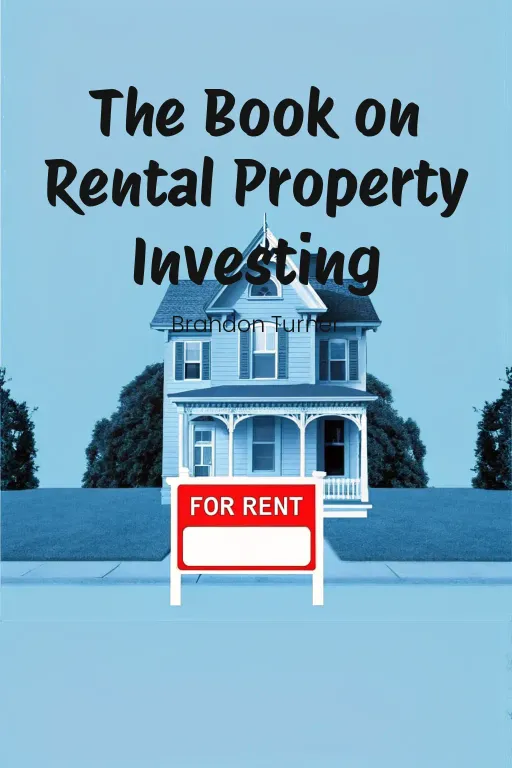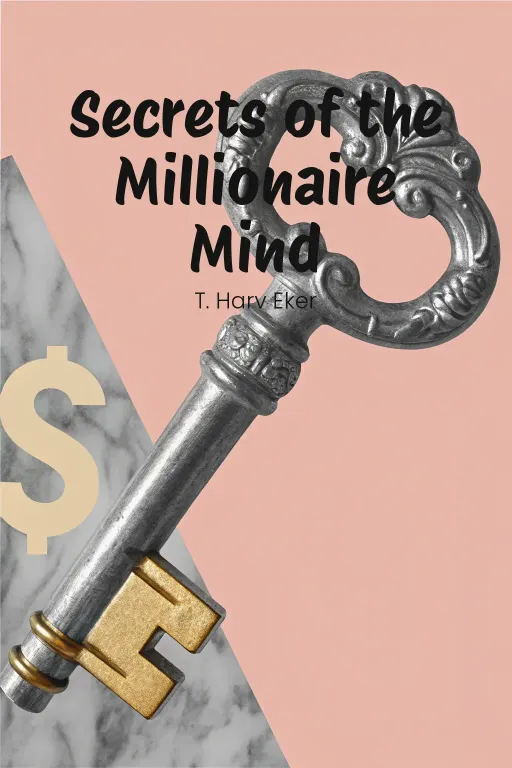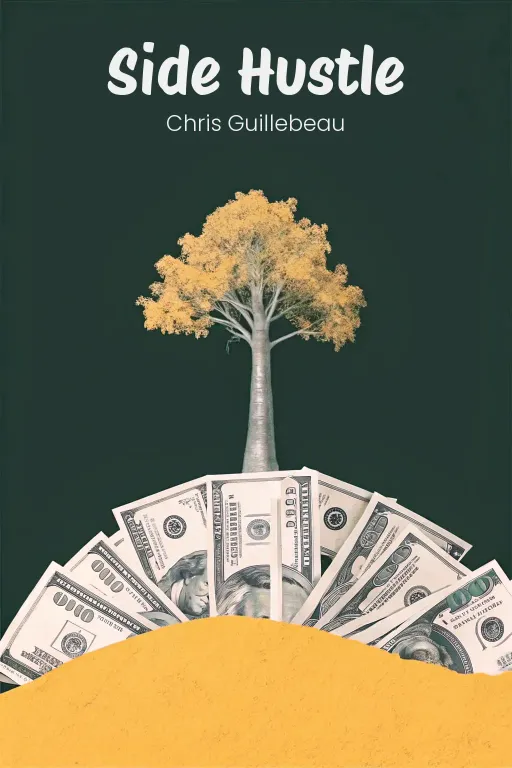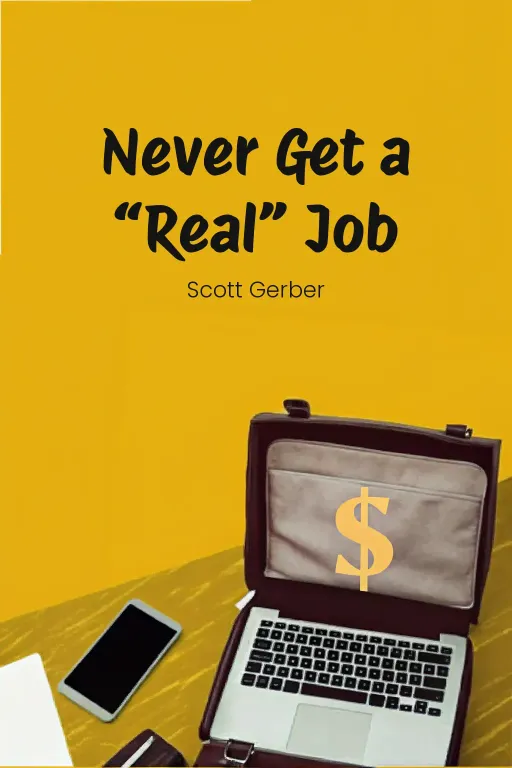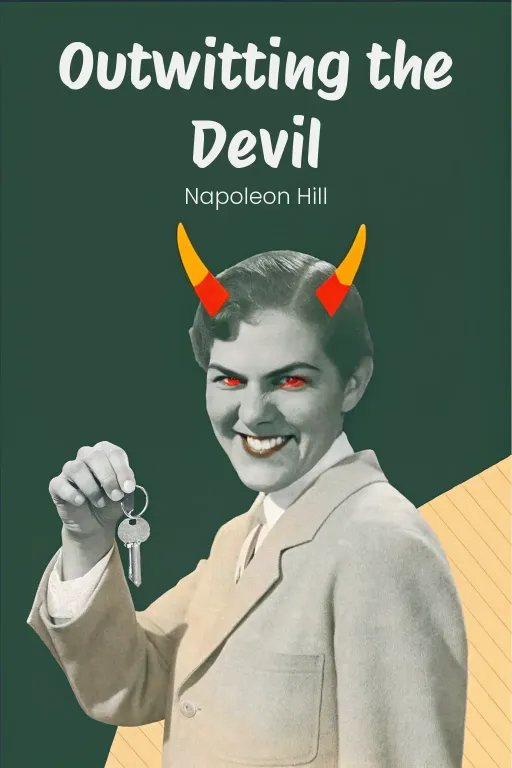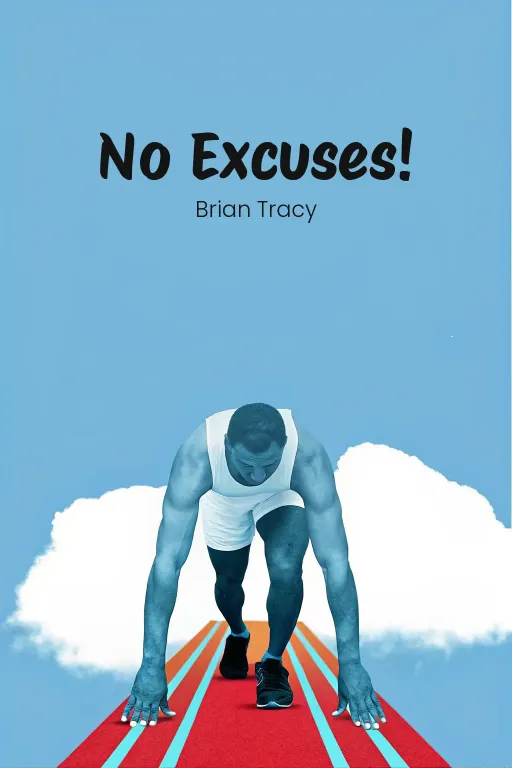
Be Your Own North Star: Purpose, Grit, and Growth
Podcast by Let's Talk Money with Sophia and Daniel
The Secret to Freedom and Success
Introduction
Part 1
Daniel: Hey everyone, welcome back! Today we're diving into a really intriguing—and maybe a little controversial—book: “Outwitting the Devil” by Napoleon Hill. Sophia: That's right, Daniel. And for anyone thinking this is some spooky Halloween read, let's be clear: it's not. It's Hill's exploration of how fear, self-doubt, and, well, society in general can keep us from reaching our potential. Daniel: Exactly! Hill frames it as a conversation with the Devil—who’s really just a symbol for the mental traps we create for ourselves. He exposes the psychological barriers that block our success: fear, indecision, and this thing he calls "drifting"—basically going through life without a real sense of direction. Sophia: So, the Devil isn’t some demon with horns, but more like… my tendency to scroll through social media for hours instead of working on my goals? I get it. Daniel: Precisely! But Hill doesn't just identify the issues; he provides solutions. His principles, like having a defined purpose, building self-discipline, and thinking for yourself, act as a roadmap for taking control of your life. Sophia: And he also tosses in some criticism of education, religion—pretty much anything he thinks conditions people to stay put. I guess he wasn’t concerned about making everyone happy when he wrote this thing. Daniel: Definitely not. So, here’s what we plan to cover today. First, we're going to unpack Hill’s concept of a clear purpose—think of it as your personal North Star guiding you forward. Next, we'll look at the discipline required to stay on course when things get complicated. And finally, we'll delve into one of Hill’s most audacious ideas: setbacks often disguise hidden opportunities. Sophia: Ah, the classic "what doesn't kill you makes you stronger" argument. Alright, Hill, let’s see if you can actually convince me.
Definiteness of Purpose
Part 2
Daniel: Okay, so we've set the stage. Let's dive into Hill's cornerstone idea: “Definiteness of Purpose”. He calls it the foundation of personal success, urging everyone to develop a crystal-clear vision of what they want. This really lays the groundwork for his whole philosophy. Without a clear purpose, Hill argues, everything else kind of unravels. Sophia: Right, Daniel, I get it. Having a purpose sounds great. But isn’t life usually messy? What if someone doesn’t actually know their purpose right now? Are they doomed to just be... mediocre? Daniel: Definitely not "doomed"! But Hill would say that a lack of direction leaves you vulnerable, period. Without a defined goal, you might fall into what he calls "drifting," which basically means aimlessly moving through life at the mercy of external influences. You know, if you don’t chart your own course, someone—or something—else will do it for you. Sophia: So, like, if I spend my days scrolling Instagram instead of, you know, launching that genius startup idea I’ve convinced myself that I have, then I’m officially a "drifter"? Daniel: Exactly. Drifting is what Hill calls the Devil’s ace because it keeps you distracted and complacent. Hill's emphasis is this: When you're clear on what you want, your time, energy, and decisions align toward that goal. That focus blocks out aimless behavior and external noise. Sophia: Okay, fine, clarity is great. But let's get practical. How does Hill suggest we go from drifting to, like, serious, intense focus? Because it sounds easier said than done, really. Daniel: No, I agree. Hill actually provides a few powerful tools. First up: “visualization.” Imagine your dream outcome in vivid detail. What does success really look and feel like? For example, if you want to start a business, picture the moment you open your first office, sign your first client, or celebrate your first milestone. This kind of mental imagery builds emotional resonance, making your goal feel real and achievable, you know. Sophia: Huh. So, what you’re telling me is that daydreaming about my imaginary office corner suite actually counts as progress? Daniel: Well, if it's done intentionally with purpose, yes! Hill’s point is that by visualizing the endgame, you actually train your brain to identify opportunities and stay motivated. Sophia: Alright, I can see how that kind of connects dots, you know, in your head. But is visualization enough? Daniel: No, visualization is just step one. Hill says you have to go beyond dreaming and commit to “writing down” your goals. Putting pen to paper turns what was once a vague idea into a tangible target. Think of it like creating a blueprint. It’s not enough to just imagine the house. You need to have, like, detailed plans to actually build it. Sophia: So, like a to-do list for life? Daniel: Kind of, but way more intentional. A written goal serves as a daily reminder of what you’re working towards and it holds you accountable. Hill even recommends breaking it into smaller steps and setting timelines to track your progress. Sophia: Alright, I have a question. So, writing goals is fine, but life changes. What happens when your priorities shift? Does Hill account for that, or are you just locked into those specific goals forever? Daniel: Great question, Sophia. Hill actually advocates for “regular reflection and adjustment.” He encourages people to periodically reassess their goals to make sure they still align with their values and circumstances. It’s not about rigidly sticking to something for the sake of it. It’s more about allowing flexibility as you evolve. Sophia: Okay, I’ll admit that sounds reasonable. Now, Daniel, let's talk people. Hill mentions surrounding yourself with supportive networks. Why’s that such a big deal, you know? Daniel: Because the company you keep heavily influences your mindset and your actions. Hill argues that being around ambitious, positive people really fuels your growth. For instance, if you’re an aspiring novelist, imagine joining a group of writers who push you to refine your craft, offer constructive criticism, and celebrate your wins. That environment bolsters your drive to achieve your purpose. Sophia: Powerful stuff. And this works both ways, right? Like the wrong crowd—negative or aimless people—can, like, derail you? Daniel: Absolutely! Hill calls them "negative influences" that can chip away at your focus and self-confidence. He’s basically telling us to be intentional not just about our goals but about who we let into our lives. Sophia: Which…yeah, it makes sense. I mean, we’ve all experienced that one toxic friend who turns every hangout into a complaints session. But Daniel, let's hit a high note here. Hill uses Thomas Edison as a case study, right? Fill me in on how Edison ties into all of this. Daniel: Oh, sure! Edison is Hill’s poster child for definiteness of purpose. He envisioned a world illuminated by artificial light and devoted years to inventing the light bulb. And over 1,000 failed attempts didn’t even discourage him! Instead, he saw each failure as a steppingstone, refining his process and learning what didn’t work. Sophia: So really, it’s less, "Wow, Edison was this absolute genius," and more, "Edison had relentless focus and grit." Daniel: Exactly. What Hill finds extraordinary about Edison isn’t just his brilliance—it’s his unwavering purpose. That clarity shielded him from discouragement and amplified his problem-solving. It’s a lesson in endurance. When you’re driven by a defined purpose, obstacles become learning opportunities rather than roadblocks. Sophia: Alright, Daniel, you’re convincing me. I mean, I hate to admit it, but I can see how getting clear on what you want—and being relentless about it—actually makes a difference. Daniel: No, it's transformative, Sophia. And today’s world is just full of distractions, which make this principle more relevant than ever. Focused goals combat the chaos and uncertainty around us, helping people channel their energy into meaningful pursuits. Sophia: Okay, final question—for now anyway. Hill talks about this being key to personal success, but does it have applications beyond just individuals? Say, businesses or teams? Daniel: Absolutely. Hill’s principle scales beautifully to organizations. Take Apple, for example. Its purpose—to create innovative products that enrich people’s lives—drives absolutely everything, from product design to marketing. That clarity ensures consistency and earns unparalleled customer loyalty. Sophia: So really, this isn’t just some self-help tool. It’s a universal framework for success, right? Daniel: Well, that’s exactly it. Whether on a personal level or a corporate scale, definiteness of purpose lays the foundation for clarity, resilience, and fulfillment. Hill believed it’s the first step in really unlocking someone's full potential—and I'd argue he’s definitely onto something here.
Mastery Over Self
Part 3
Daniel: Building on the idea of clarity of purpose, our next topic is self-discipline. It’s really about mastering yourself – staying focused and resisting distractions. It takes that initial purpose and gives you the “tools” to actually stick to your goals. Sophia: So, we’re going from knowing where you want to go, to, you know, actually “staying” on course. Makes sense. I’m guessing “not drifting” takes more than just good intentions, right? Daniel: Absolutely. Hill sees self-discipline as the “key” – the bridge connecting a clear purpose to achieving it. Dreams are great, but without discipline, they just stay dreams. And what’s interesting is, it’s not about deprivation! It’s about consciously redirecting your energy to what “really” matters. Sophia: Okay, get specific. How “do” we master ourselves? I mean, Netflix and pizza are “right there”. The snooze button “exists”. Daniel: Well, Hill starts with basic physical appetites. He thinks that if you can’t manage your basic desires – food, rest, even leisure – you’ll drain the mental clarity and energy needed for your goals. It’s like, if you’re constantly indulging, your body and mind aren’t operating at their best, which affects your progress. Sophia: So, my cookie habit isn’t just slightly unhealthy, it’s actively sabotaging my career? I hadn’t considered that. Daniel: It could be! Hill sees the body as an instrument that needs tuning. Habits like binge-watching drain energy that could be used for focused effort. It’s why he emphasizes “mindfulness” in your physical choices. Sophia: Got it. I assume he doesn’t just say, "Eat kale, not cookies?” What’s his “practical” advice? Daniel: Not at all. His approach is about setting boundaries and creating systems that encourage healthy choices. Things like consistent routines – meal planning, exercise, quality rest – so physical discipline “supports” your mental clarity. Take care of your body, and your mind follows. Distractions lose their power. Sophia: Sounds like elite athletes. They don’t just show up and win; teams monitor their nutrition, sleep, even mental well-being. It's all about peak performance. Daniel: Exactly! Hill compares it to Olympic athletes who’ve succeeded through careful discipline. Take Michael Phelps. His discipline, the diet, training, visualizations – it didn’t just prepare him physically. It gave him a psychological edge; no distractions, no doubts. Sophia: Right, you don’t get 23 gold medals by randomly eating pizza. But beyond the physical, does Hill talk about mastering “time”? Because that feels impossible these days. Daniel: Absolutely. He considers time a finite resource, and effective management is a cornerstone of self-mastery. Meticulous planning, breaking goals into tasks, assigning time slots, holding yourself accountable - each moment adds value rather than drifting away. Sophia: Realistic, though? Meetings, kids, emails… What’s his solution for modern life that he couldn’t possibly have imagined? Daniel: Good point. His framework works “because” it comes down to intent and structure. A good modern interpretation is the Pomodoro Technique – short bursts of focus, then intentional breaks. That aligns with his treating time as sacred: Don’t let it slip away, but structure your time to stay productive. Sophia: I like that. It’s not about being superhuman, but being intentional with the time you “do” have. And, I guess that applies to the mental stuff, too – hard work versus napping, for example. Daniel: Exactly. Hill dives into that internal battle. Self-mastery isn’t just saying “no” to distractions, but replacing bad habits with good ones. He calls it disrupting your "hypnotic rhythm"—those repetitive cycles of behavior, good or bad, that shape our lives. Break the cycle of procrastination, and you create a new rhythm focused on progress. Sophia: Sounds great, but those ingrained habits are tough to break. What’s his advice for "rewiring" our brains? Daniel: He advocates for deliberate, consistent effort on small changes. Modern behavioral science backs this up, like James Clear’s “Atomic Habits”. It's tiny, consistent actions – even five minutes a day on your dream project – that reprogram habits and identity over time. Hill's genius is seeing that the brain resists huge overhauls, but not calculated, incremental change. Sophia: So, baby steps to self-discipline. I like it. And does this self-mastery affect decision-making, too? Daniel: Definitely. Deliberate decision-making – pausing to think about long-term consequences instead of giving in to immediate satisfaction – is central to self-mastery. Take Warren Buffett. He’s disciplined in his lifestyle “and” his investment choices. No trends or pressures; he aligns every action with his long-term goals of steady financial growth. Sophia: So Buffett avoids shiny distractions in life and the stock market. Next-level focus. And it’s more than individual success, right? Hill talks about ripple effects? Daniel: Yes, because Hill sees self-discipline as a contribution to the greater good. Figures like Gandhi mastered their own thoughts and actions so profoundly that their discipline inspired millions. Hill saw self-mastery as individuals uplifting themselves “and” their communities, creating broader change. Sophia: It’s not just about avoiding distractions, it's about becoming someone who positively impacts others through example. Daniel: Exactly, Self-mastery is contagious. When you live purposefully, you show others what’s possible. Sophia: That ties it all together: purpose, discipline, the ripple effect. Hill’s argument is using discipline to unlock “freedom” – freedom to pursue goals without distractions or doubts. Daniel: Exactly! For Hill, self-discipline isn’t a constraint, it’s empowerment. By mastering yourself, you create the space to fully align your life with your dreams.
Learning From Adversity
Part 4
Daniel: Now that we've talked about self-mastery, it's natural to discuss how adversity can actually fuel growth and resilience. Hill makes a compelling case that the challenges we face—those “really” tough, seemingly impossible moments—aren't just obstacles, but critical tools for transforming ourselves. Sophia: Right, adversity. The teacher nobody wants, but with the lessons everyone needs. So, is Hill basically taking the "what doesn't kill you makes you stronger" idea and turning it into a core life principle? Daniel: Exactly. He reframes adversity not as something to simply endure, but as a necessary refining process. He believes every setback contains what he calls the "seed of an equivalent advantage." Meaning, hidden within every failure is an opportunity for growth, creativity, or resilience… if we’re willing to find it. Sophia: Okay, Daniel, let's put this to the test. Say I completely bomb a presentation at work—that awful feeling of public failure. How do I find a "seed of advantage" in that? Lay it on me. Daniel: Okay, well, Hill would say it begins with reflection, something he emphasizes. Instead of just dwelling on how embarrassing it was, you need to “really” analyze what went wrong. Did you not understand your audience? Were your visuals confusing? Did you just panic and lose your train of thought? That honest self-assessment, as painful as it can be, gives you valuable insights that you can use to your advantage next time. Sophia: So instead of just feeling sorry for myself, I treat it like an autopsy for improvement. I can, reluctantly, see the logic in that. Is there anything deeper to Hill’s idea than “learn from your mistakes,” though? It kind of feels obvious. Daniel: He definitely goes deeper, Sophia. He talks about adversity as nature’s ultimate teacher—forcing us to tap into inner reserves of strength we didn't even know we had. Hill sees it as a tempering process, a bit like forging steel in a fire. It's not just about recovering; it's about emerging stronger and more adaptable as a result. Sophia: Alright, Daniel, let's zoom in a bit more. Any examples of people who “really” embodied this "forged in fire" concept? Daniel: Absolutely. Hill often talks about figures like Thomas Edison. He tried over 1,000 experiments before finally inventing the light bulb. But Edison didn't see those attempts as failures. He famously said, "I've just found 10,000 ways that won't work." Those "failures" weren’t the end. They were stepping-stones. His resilience and his ability to reframe setbacks into opportunities for learning are what made his success inevitable. Sophia: Edison and his light bulb. It's a classic story for a reason, I guess. But what pushes people like him to keep going after fail number 500? Or 999? Most of us would have given up long before that. Daniel: That's where mindset comes in. Hill argues that how you perceive adversity determines whether you grow or crumble. If you see setbacks as proof that you're not good enough, you'll stop trying. But, if you see them as opportunities to adjust your approach, you'll build the psychological armor—resilience, creativity, determination—that you need to move forward. Sophia: So it's not just about dealing with failures, but actually welcoming them as part of the process. Like, "Hey failure, looks like we're roommates now." Daniel: Exactly! Take Abraham Lincoln, for example. He faced enormous setbacks: countless political defeats, personal losses, his own bouts with illness. Yet, he never lost sight of his purpose. Instead of seeing failure as rejection, he viewed it as redirection, a way to refine his vision and strategy. And eventually, he became one of the most celebrated leaders in history. Sophia: Lincoln definitely had persistence down. Aside from just grit, though, does Hill talk about how adversity can actually spark creativity? It's often those unexpected curveballs that force people to think differently, right? Daniel: Spot on, Sophia. Hill directly connects adversity to innovation. He argues that, when typical methods fail, the need to solve problems under pressure can “really” drive creativity. A great example is the invention of Post-it Notes. Spencer Silver was originally trying to create a super-strong adhesive. Instead, he made a weak one that seemed like a failure… until, years later, his colleague Art Fry realized it could hold paper without leaving residue. What started as a "failed" project became one of 3M's most iconic products. Sophia: Yeah, that's the kind of happy accident I can get behind. It sounds like an open mind is key, being ready to pivot when things don't go as planned. Daniel: Absolutely. Hill points out that we often get so fixated on our initial approach that we miss alternative possibilities. Adversity forces you to step back, reassess, and adapt in ways you might never have considered otherwise. Sophia: Alright, I see the value in reframing failures and learning from setbacks. But Daniel, what about just plain exhaustion? Doesn't adversity just wear you down after a while? Daniel: That's where resilience becomes crucial. Hill emphasizes that enduring adversity builds mental toughness over time, like muscles growing stronger after exercise. And, you know, it's not just his theory—modern psychology backs this up. Studies on post-traumatic growth show that people who overcome challenges often report higher levels of empathy, greater emotional strength, and a renewed sense of purpose. Sophia: Interesting. So adversity isn't just about getting through hard times, but actually thriving because of them. It flips the entire script. Daniel: Exactly! And Hill encourages us to see life's toughest moments as, not barriers, but bridges to becoming better and discovering new opportunities. He urges us to ask, "What can I learn from this? How can this challenge prepare me for something bigger in the future?” Sophia: Alright, Daniel, let me put you on the spot here. Based on all of this, is adversity something we should actively be pursuing? Or is the lesson here just to embrace it when it inevitably hits us? Daniel: A little of both, Sophia. Hill isn't suggesting we go looking for hardship just for the sake of it, but he does advocate stepping outside our comfort zones, knowing that, you know, the discomfort we face will stretch and strengthen us. Challenges are unavoidable, but how we react to them… well, that's completely within our control. Sophia: Got it. So it's about building the mindset to turn life's inevitable curveballs into fuel for growth. Sounds like the ultimate form of alchemy. Daniel: It “really” is, Sophia. Hill's philosophy on adversity goes beyond just personal success; it's about using resilience to create a ripple effect. When we transform our struggles into strengths, we not only pave the way for our own success, but inspire others to do the same.
Conclusion
Part 5
Daniel: Okay, so to bring everything together, Napoleon Hill's “Outwitting the Devil” really gives us some powerful strategies for life. We talked about how important it is to have a clear purpose, this personal North Star that guides your actions and decisions. Then, we got into self-discipline, seeing it as the bridge that turns what you want to do into what you actually do, keeping you focused and building good habits. And finally, we looked at adversity—not as something that stops you, but as a teacher that helps you become stronger, more flexible, and more innovative. Sophia: Right, and let's not forget Hill's main point: these aren't just random tips. They all connect. You figure out your purpose, so you can learn to control yourself. You learn to control yourself, so you can handle whatever life throws at you. It’s like you're building up layers of protection for yourself to achieve your goals—mentally, emotionally, and maybe even spiritually, if you want to get deep about it. Daniel: Exactly! Which brings us to the question: What's your clear purpose, and how can you change your habits and mindset to go after it? Hill says success is a choice, a result of living consciously with clarity, discipline, and courage. So, ask yourself, are you just drifting along? Or are you actually steering your own ship? It's never too late to grab the wheel. Sophia: And remember this: adversity isn’t out to get you. It’s a place to train. The next time things get tough, ask yourself, "What's the opportunity hiding here?" You might just find your big chance. Daniel: Well said, Sophia. And with that, we leave you with Hill’s challenge: face your fears, master your habits, and believe that even the toughest times are shaping you into something amazing.


